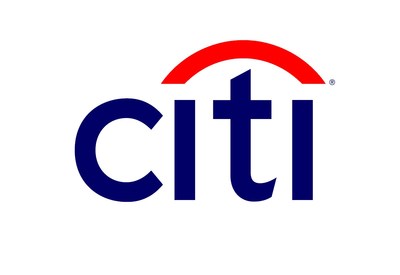Nervousness over the regulatory vacuum is palpable among cryptocurrency exchanges in India. This has led many to wonder about the future of blockchain technology, which is the technological backbone of digital currencies.
In this context, certain words of the Governor of the Reserve Bank of India, Shaktikanta Das, seem relevant. “Blockchain technology has been around for 10 years and can develop without cryptocurrency,†the RBI governor said recently. Stakeholders operating in the ecosystem also hold similar views.
“Currently, the challenge comes from regulatory uncertainty for cryptocurrencies. But, blockchain as a technology is likely to thrive as there are different use cases. From smart contracts to trade finance, the uses of blockchain technology are many. Moreover, the government itself is promoting this technology, as evidenced by the fact that IIT Kanpur, in collaboration with the Ministry of Electronics and Information Technology (MeitY), has launched a course on blockchain, â€said Pareekh Jain, IT outsourcing consultant and founder of Pareekh. Consultant.
Read more: Why the luxury tourism industry is hanging on to Blockchain technology
There are many use cases for blockchain technology. Trade finance and smart contracts have become real examples in recent years. Increasingly, digital assets – which are not limited to virtual currencies but include stocks, bonds, digital gold – are being discussed for storage in blockchain ledgers.
Besides financial services, players operating in retail, hospitality, mobility and healthcare, among others, are actively seeking various blockchain-based solutions for implementation across the globe. India is also part of this larger trend.
Last year, major banks including the State Bank of India (SBI), ICICI Bank, Kotak Mahindra, Axis Bank and 11 others formed a new company called Indian Banks’ Blockchain Infrastructure Company Private Limited (IBBIC). This new entity has a mandate to harness blockchain technology to solve a central problem in the traditional banking industry – the processing of letters of credit (LC), GST invoices and electronic waybills.
Interestingly, this system will be based on Infosys’ Finacle Connect, which is a blockchain-based platform that enables the digitalization and automation of trade-related financial processes. Not only traditional banks but India’s burgeoning fintech ecosystem are also driving blockchain adoption in recent years.
While large Indian IT departments offer many innovative blockchain-based solutions, the startup ecosystem is also doing its part. Companies like Oropocket, GoSats. OpenXcell, SoluLab, and many other startups provide blockchain-based solutions to businesses across the spectrum.
Against this backdrop, many believe India may be at the epicenter of blockchain innovation rather than offering crippling cryptocurrency regulations – the biggest use cases yet.
“These blockchain startups, which look more like service providers, will not face any regulatory pressure, but those who design completely decentralized applications, where having a token for their ecosystem is a good idea, will unfortunately be affected by this,” Yash Mishra said. , co-founder of social media VoxWeb and cryptocurrency Vollar.
“In this context, the pivot is not desirable when your current offer is doing well. Government interference in Web3 under the pretext of regulation would hurt India’s prospects of being at the forefront of such massive change, â€he added.
Web 3.0 to work as a catalyst
The debate over Web 3.0 is currently raging. Such is the intensity of the debate that tech titans Elon Musk and Jack Dorsey had different views on this emerging theme. While Web1 was all about the static web pages of the 1990s, Web2 saw the emergence of social networks and mobile apps.
In Web 3.0, the third generation of the Internet is based on the concept of advanced computing and uses platforms based on blockchain, cryptocurrencies, NFTs (non-fungible tokens) and many more.
Experts believe that the emergence of Web 3.0 will work as a catalyst for the blockchain ecosystem as a whole.
This is mainly due to the concept of “decentralization” used in Web 3.0. According to a report by the India-United States Strategic Partnership Forum (USISPF), Web 3.0 can help India contribute an additional $ 1.1 trillion to its GDP over the next 11 years.
Growing interest from investors
No wonder investors are aggressively injecting capital into blockchain-based startups in India. Last year has been the best year for home crypto, blockchain startups as fundraising have taken a giant leap forward.
Total risk funding in Indian crypto and blockchain startups has increased more than 15-fold to around $ 600 million, from just $ 37 million in 2020.
Although the lion’s share of this funding went to crypto exchange platforms like CoinDCX and Coinswitch Kuber – the two new unicorns of crypto exchange in India, other startups have also caught the attention of investors. time.
As more and more blockchain-based solutions are implemented, fundraising by these new age companies is expected to accelerate in the years to come.
“Lately, we are seeing a great interest in the B2B space. Because the capital required is less than that of B2C startups and the returns are higher, â€said V Balakrishnan, co-founder and president of Exfinity Venture Partners and former CFO of Infosys with regard to startups operating in companies. advanced technologies like the blockchain technology space.
So, regardless of the proposed cryptocurrency regulations, the Indian blockchain ecosystem is poised to grow.
And the government, with its policy making, can certainly lend a hand to its healthy and sustainable growth.
Watch the latest DH videos:
 Universo Viviente
Universo Viviente



